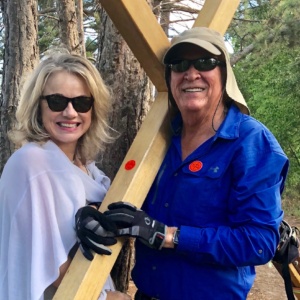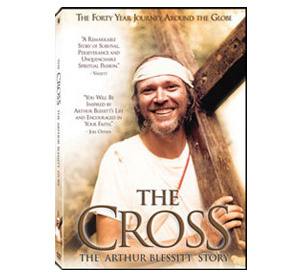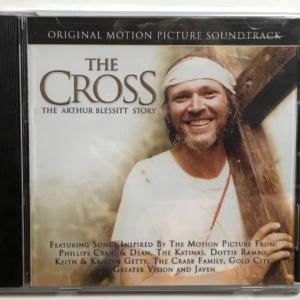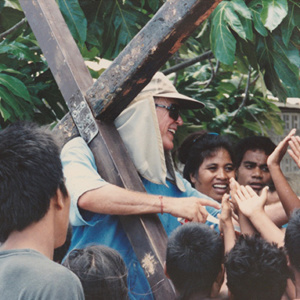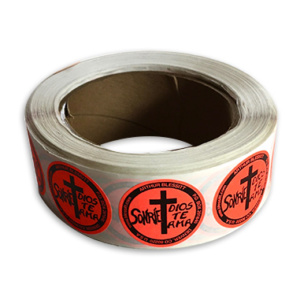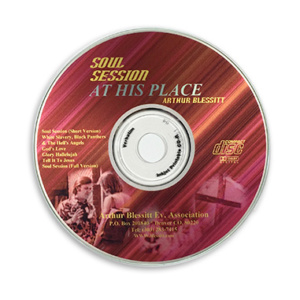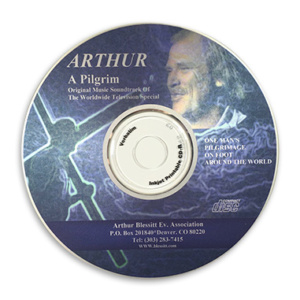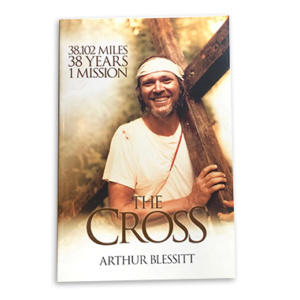CHAPTER 4
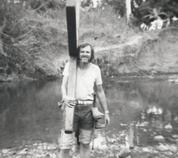
NOT IF, BUT HOW
Darien Jungle
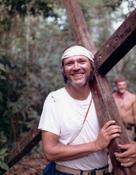 As I lie in this hammock between two trees, my ears ring with the wild sounds of jungle life. The dark night is closing in on me, but the brightness of your light shines upon me.
As I lie in this hammock between two trees, my ears ring with the wild sounds of jungle life. The dark night is closing in on me, but the brightness of your light shines upon me.
I can’t sleep, Lord. I ache all over and my arms sting from mosquito bites, I’m trembling in this cold.
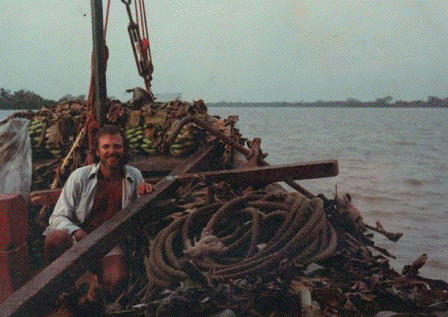 I’m stripped of dependence on anything but you, Jesus. You’re showing me that prayer is more than speaking with you, it’s living with you! I know you are walking with me, going with me through this struggle. It is so tough. But you know the way through this jungle. Oh, hold me when I’m falling and lift me from the raging waters. I have nothing but you, and that is enough. This is one of the hardest struggles of my life. I don’t even know if I’m going to make it, but in the name of Jesus, the devil is not going to kill me here. Jesus, if you want me to die, then that’s okay, but somehow, someway, you will lead me through to Colombia on the other side of glory.
I’m stripped of dependence on anything but you, Jesus. You’re showing me that prayer is more than speaking with you, it’s living with you! I know you are walking with me, going with me through this struggle. It is so tough. But you know the way through this jungle. Oh, hold me when I’m falling and lift me from the raging waters. I have nothing but you, and that is enough. This is one of the hardest struggles of my life. I don’t even know if I’m going to make it, but in the name of Jesus, the devil is not going to kill me here. Jesus, if you want me to die, then that’s okay, but somehow, someway, you will lead me through to Colombia on the other side of glory.
One of the most important things I have learned in my journeys around the world with the cross is that I should focus not on if but rather on how. How do I get the visa I need? How do I get into a country that is difficult to enter? How do I get across that river or up that mountain?
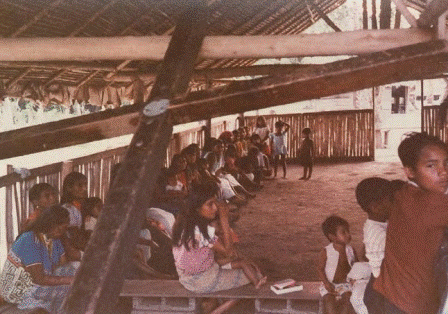 Facing Death in the Jungle
Facing Death in the Jungle
In 1979, ten years after God called me to carry the cross around the world, I found myself up against one of the world’s deepest, darkest, most impenetrable jungles – the famous Darien Gap. As I carried the cross from Panama City, Panama to Turbo, Colombia, I had to pass through rugged mountains, huge swamps and thick forests where sunlight seldom reaches the ground.
The footing is often treacherous because of the heavy rainfall of about 180 inches a year. Conditions are hot and humid during the day; but, as I would discover, the nights get cold enough to need a blanket. There are deep, narrow rivers with rapids and waterfalls, steep cliffs covered in vines and mile after mile of grass and thick brush. All kinds of fungi and diseases, including rabies, thrive in the Darien Jungle. And the region’s insects, reptiles and other animals are equally dangerous. Whether it’s leeches, mosquitoes, ticks, spiders, scorpions, ants, panthers, wildcats or snakes (there are three to watch out for: the six-foot coral snake; the fer-de-lance snake – which bites feet and ankles – ; and the bushmaster, which lives in trees and strikes the face and neck), there are many ways to die in the jungle.
It’s no surprise that few people have traveled this stretch of land that joins the South American continent to the North American continent. But this jungle was where I had come to in my journey with the cross from Mexico to Colombia. God had called me two years earlier to carry the cross on foot from North America to South America.
I often travel with others to help me with supplies or to interpret, and this time two sturdy American men traveled with me. But as I would see, they focused more on if than how.
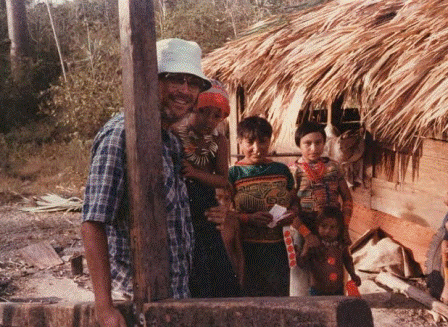 Burdens and Blisters
Burdens and Blisters
Each of us carried a hundred-pound backpack that held the gear we needed. My backpack was tied onto the back of the cross, which increased my load. With temperatures and humidity levels hovering around 100, every step was hard work.
Conditions in the jungle grew worse each day and my two partners suffered from sore backs and blisters. Five days into the journey one of them said he was finished. Two days later, my other companion decided to drop out.
“Hey,” I said, “we must do this together.”
“But, Arthur, we can go around this area by boat or fly to Colombia,” he replied. “We don’t need to trudge through this jungle.”
I was so numb from a combination of shock, pain and aloneness that I didn’t know what to say. After saying goodbye first to one friend and then the other, I wondered how they could do this to me. It was because they were thinking if while I was thinking how.
Going it Alone
In this moment of crisis I had to decide which supplies I would need as I continued through the jungle alone. With tears streaming down my face, I chose my Swiss Army knife, a hammock, two rolls of Jesus stickers, my Bible, the clothes I was wearing, my passport, my money purse in a plastic waterproof bag, a tin of lemon drops, two canteens of water and my machete.
I packed everything in the backpack, tied it onto the cross and walked alone into the darkness of the jungle .
For weeks I walked up and down mountains and along riverbanks. I had to crawl up some of these mountains, pushing the cross a foot or two at a time. At other times the undergrowth was so thick that my arms became numb from swinging my machete. I was bleeding from several deep cuts. I was tired. I was wet. My back hurt. My feet were burning and bloody, but I went on.
I waded across as many as nine streams or rivers in a day, barely avoided going over cliffs and waterfalls and grabbed onto vines to help me ascend and descend what seemed like a million valleys. I was particularly thankful when the vines didn’t break. When they did break, I’d holler, “Jesus” and push the cross one way while falling the other, praying I wouldn’t land on a rock or log.
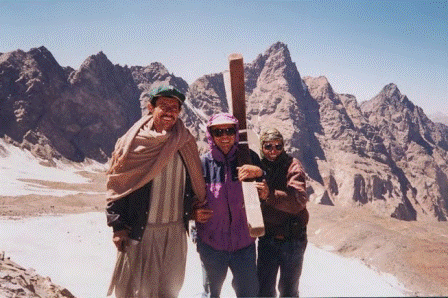 Even sleep provided little relief. It was almost as difficult to sleep as it was to walk. I’d hang my hammock between two trees at night and lie shaking in the cold air. (To lessen the weight, I didn’t take a blanket when I started out on my own). In the morning, I would whisper, “Jesus, I can start off again.”
Even sleep provided little relief. It was almost as difficult to sleep as it was to walk. I’d hang my hammock between two trees at night and lie shaking in the cold air. (To lessen the weight, I didn’t take a blanket when I started out on my own). In the morning, I would whisper, “Jesus, I can start off again.”
During my weeks in the jungle I developed a taste for iguana meat. As the natives of this do, I also carried iguana eggs with me to roast over a fire.
Day after day as I trudged forward, I asked God to give me strength to keep walking. One day I wrote in my journal: “My heart is so tender; my mind is tough, my body is in pain. But, I’m going to make it by God’s grace.”
The People of the Jungle
I traveled day after day without seeing any sign of human life. But other days I knew I was getting closer to civilization, which happened one day when I came to a pigpen outside a village. I laid some boards that I found nearby across the top of the pen to make a simple bed. I call it the “Pig Hilton”! Those pigs never slept. It was grunt, grunt, grunt, bump, bump, bump all night long. Added to that was an awful smell.
Another day I emerged from the thick jungle into a village located at the side of a river.
At first everyone ran in fear. Then the people came toward me as I played with the small children. The houses in this village were erected on poles high above the ground. Neither the women nor the men wore much clothing. But that was okay. The thing that concerned me most was that I couldn’t speak to them about Jesus in a way they could understand. When I spoke Spanish, they didn’t respond. I wanted to share about Jesus, but how?
It was then that I felt the Lord leading me to present the gospel through dramatizing the crucifixion. Most of the villagers were sitting on the ground around me, while a few stood behind them. I took the 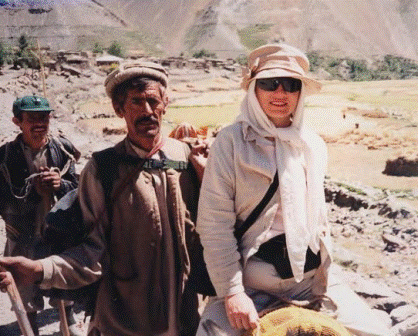 cross and leaned it against one of the houses. I put my hands to show them how the nails were driven through Jesus’ hands and into the cross, but these people had no knowledge of nails — only cords.
cross and leaned it against one of the houses. I put my hands to show them how the nails were driven through Jesus’ hands and into the cross, but these people had no knowledge of nails — only cords.
As I tried to act out the crucifixion, I prayed: O Lord, I don’t mind struggling my way through this jungle, but I want these people to understand your love.
Tears flowed from my eyes as the desire to convey the message of Christ’s sacrifice at Calvary overwhelmed me. I closed my eyes and prayed, O Jesus, help them.
As I opened my eyes, I saw that an older woman with no teeth had begun to cry. Soon the entire village was weeping. I went to the children and began saying, “Jesus, Jesus, Jesus,” touching their beautiful little faces. Finally one of the children said, “Jesus,” followed by many of the others. I pointed to the cross then to heaven then to my heart and then to their hearts – each time saying, “Jesus.”
Only God knows what the people in this village understood, but I later heard that missionaries who reached the village and spoke the language were told the people had already heard of Jesus.
From that time on, drama became my main method of proclaiming the gospel when language posed a barrier.
(Note: This is quite different from the crucifixion reenactments carried out, most notably, in the Philippines, in which individuals are voluntarily nailed to wooden crosses every year on Good Friday. Such penitence is completely unnecessary and inappropriate, since Jesus Christ, the Son of God, is the only one who can be – and has been – crucified for the benefit of every human being. My dramatizations of the crucifixion are simple presentations in which it is obvious to the audience I am playing the role of Jesus.)
A Meeting of Opposites
One day as I was cutting my way through the dense undergrowth with my machete miles and miles from civilization, I heard something that sounded like a chainsaw. I headed toward the sound and during a pause in the commotion, called out, “Is anybody there?”
Surprisingly, an answer came back in English, “Yes!”
We cut toward each other in the jungle until I came face to face with a group of adventurers. They were traveling from the tip of South America to Alaska in two four-wheel drive vehicles. They told me they were trying to become the first group to accomplish this feat.
This was a meeting of opposites.
Their group consisted of about seventeen white men accompanied by about twenty Indian porters.
I was on my own.
These adventurers looked like Indiana Jones.
I looked like someone who had been alone in the jungle for weeks – which I was!
They were dressed in nice clothes and carried the best and latest equipment, including hiking gear supplied by sponsoring companies and high-resolution cameras used to take photos for National Geographic.
I was dressed in sweaty rags of clothing and carried only my machete and a twelve-foot cross.
“What are you doing?” they asked me in wonder.
“I’m carrying a cross,” I said calmly.
“From where?”
“From Mexico to Colombia. Behind me is the trail I’ve cut.”
They could hardly believe their eyes and ears. They invited me to join them for a meal, feeding me some of the best food I had eaten in weeks and filling my pockets with additional food. Plus they listened kindly as I told them about Jesus.
Much later,after I had returned to my home in the United States, I received a letter from one of the men in the group. It included photos of some of the villages they went through as they proceeded in the same direction from which I’d come. The photos featured near-naked villagers sporting the stickers I had given them that said, “Smile, God loves you!”
Reaching the Other Side
Finally, one month after heading into the Darien Jungle, I came out the other side at the wild town of Turbo, Colombia. I made quite an impression with my long hair and bushy beard, a machete swinging at my side and the cross hanging on my shoulder.
Looking back on this experience, I’m reminded of these words of Jesus:
As they were walking along the road, a man said to him, “I
will follow you wherever you go.”
Jesus replied, “Foxes have holes and birds of the air have
nests, but the Son of Man has no place to lay his head.”
He said to another man, “Follow me.”
But the man replied, “Lord, first let me go and bury my
father.”
Jesus said to him, “Let the dead bury their own dead,
but you go and proclaim the kingdom of God.”
Still another said, “I will follow you, Lord: but first let me
go back and say good-by to my family.”
Jesus replied, “No one who puts his hand to the plow
and looks back is fit for service in the kingdom of God.
(Luke 9:57-62)
Jesus called me to the hot and muggy jungles of Latin America, and he led me through. Twenty years later he led me up and over one of the biggest and coldest mountains of the Far East.
From Pakistan to Afghanistan
The goal was to carry the cross from Pakistan to Afghanistan. The barrier that stood in our way was the historic Khyber Pass. This heavily armed route was not open for us to cross. But since the question was how — not if – we would proceed, we found another route near the remote and ancient town of Chitral.
The journey toward the higher pass started in a four-wheel drive jeep Denise and I rode in for four hours near Tirich Mir, one of the highest mountains in the world. Our guide, a Muslim man named Syed, drove us up stone roads so narrow they could hold only one vehicle. These roads, cut out of the rocky cliffs, had no guardrails to protect us from the sheer drops that plunged hundreds of feet into a raging river.
When we reached an elevation of about nine thousand feet we stopped so I could assemble the cross and start walking. At the last village on the Pakistan side of the border we stopped, enjoyed hot tea and spent the night before resuming our journey. We tried to share about Jesus, but our guide would not interpret the gospel message.
Up before dawn the next morning, I carried the cross while Denise rode a donkey. But in time the way became so rocky and slippery the donkey would go no farther. Denise tried climbing the steep mountainside but could not continue. One of our guides said he would accompany her down the mountain to a camp where she could stay. I bid a tearful farewell. This would be our first night apart since we were married. Meanwhile, Syed and two other men climbed the mountain with me.
Soon we came to a major cliff. We took the cross apart so it could be hauled in three pieces. As we continued, the way grew steeper, narrower and more rugged. The cold wind penetrated to the bone as I shivered and shook. We found a place to camp for the night and ate a simple meal of roasted corn, wheat bread and apricot seeds. Syed and I slept on a bed of rocks. I was cold and uncomfortable, but the night sky shone forth the glory of the Creator. Not even the painful, rocky bed could keep my soul from rising above the discomfort to visit with God through the splendor of the night.
Early the next morning we continued up the slope. Each step was more difficult than the last and each gain we made in elevation meant the oxygen we took into our weary bodies was thinner. There in the high Hindu Kush mountain range I learned that the only way I could make it was to pull my hat down over my eyes so I could only see about ten steps in front of me. I gave everything I had to complete those ten steps. Then I would lift my head so I could see ten more steps. That was how we continued over boulders and across a massive glacier.
At one point I was so exhausted, I cried out to God: I’m too tired, too tired, too exhausted to pray. I can’t even think clearly. Only you can get me up there! You know my needs. I’ll just repeat the name of Jesus and you take care of me. You can give me pure oxygen! I did not experience any headaches or major bouts of nausea for the rest of the climb.
After more sliding, stumbling and struggling we made it to the top of Bronzal Pass at 18,200 feet, which is the highest I have gone in my journeys with the cross. I quickly laid the three pieces of the cross out and bolted them together. Then lying face down on the ground so that my body straddled the border between Pakistan and Afghanistan, I prayed. I prayed for peace, the blessings of God and love to fill every heart. Then I raised the cross upright and looked at the two beautiful glaciers we had walked across. I also gazed at the 25,000-foot mountain, Tirich Mir, which towered over us. I was so excited. This was one of the most glorious moments of my life.
It had taken us eight hours to reach the summit. After enjoying the view we walked a short distance down the other side of the mountain into Afghanistan. The men helped me with the cross in case the cold, wild wind blew me over. We climbed back to the summit. Now the cross had been in Afghanistan!
I looked at Syed and the other members of our team with tears in my eyes as I prayed for each of them and their families. These Muslim men put their lives in danger and faced death to help me take the cross to the top of this mountain. They never complained or turned back.
I’ll never forget what Syed told me when I thanked him: “It’s my moral responsibility to help you. You are on a mission from God to carry the cross in every nation. It’s my moral responsibility to help you accomplish this for God. I gave my word: I would never consider changing it!”
Syed interpreted to the two porters as I shared the message of the cross. All three of them prayed and welcomed Jesus into their lives on the mountain that day.
The Journey Back
After resting for about an hour, we began the return trip down to our starting point in Pakistan. You might think this would be easier, but the descent was more dangerous than the ascent. The weight of the cross, which we had again taken apart so it could be carried in three pieces, pushed us down the sliding rocks. As we descended, my legs felt weak and rubbery. The other men had to support me to keep me from sliding down the mountain.
Before dark we made it back to the camp where Denise was staying. From a distance I could see her waving from the valley below. When I finally reached her, just as darkness fell, I literally fell into her arms. We fell asleep thanking God for his great mercy, grace and safety.
The next morning we continued our return journey to Chitral, Pakistan. Denise rode the donkey and I walked alongside her as we set off down the valley. First we passed through pastures of green grass by streams, and then cornfields located in small patches of the canyon and then wheat in areas wide enough to plant a small field. We continued along steep cliffs and over raging waters, which we crossed with the help of rope and stone bridges.
We slept again in Chitral, but our hearts were still on the mountain that towered above us. As Denise and I talked about this journey, we thought about something Syed had said to us. During one of the trip’s difficult moments, he looked at us and said, “It’s only a challenge!”
The Difference Between No and Go
At the beginning of this chapter, I talked about the word if. Another member of my list of least favorite words is the small word no. Only one letter is different between the words no and go, but what a difference of meaning is conveyed.
Over the years I have encountered many challenges. My goal, however, has been not to allow myself to be defeated, but rather to keep seeking the way forward – whether it is straight ahead or up or under or around. First I try one thing and then another as I follow Jesus’ leading. Then, when the way opens before me, I rush through.
When Jesus calls you to follow him, or when he gives you and assignment to fulfill, I pray you will focus not on if, but on how – because I believe that with God’s grace you will achieve amazing things.


